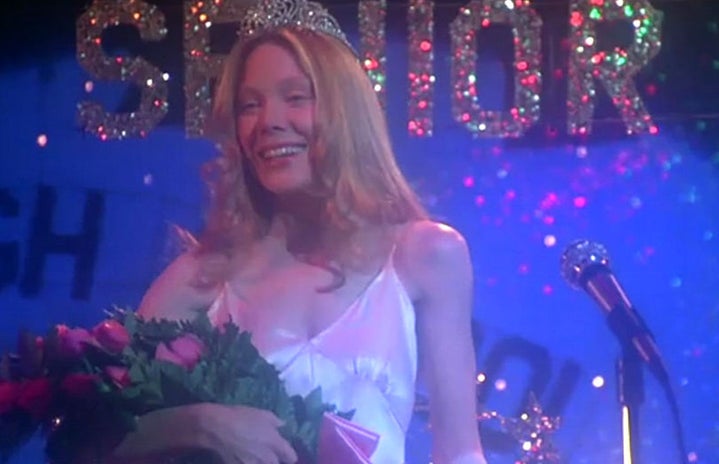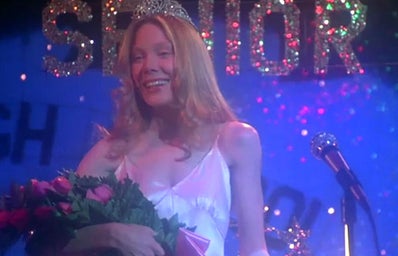If you haven’t seen Gone Girl, the 2012 novel written by Gillian Flynn turned thriller movie directed by David Fincher, then you’re missing out. Gone Girl is one of the first thrillers depicting a woman as the villain. Amy Dunne is an antihero to relate to and root for. *Spoiler Alert* She is a woman who frames her lying and cheating husband for her murder. In a dramatic and cruel way, Amy Dunne punishes her husband by almost putting him on death row for her murder, which he did not commit, and she kills an ex-boyfriend in a gory way. Disgusting, inexcusable, and purely evil actions. Yet when you watch her do everything and hear her thought process, it’s hard to hate her. She explains how her husband was sleeping with his college-aged student. How he financially drained her. Almost every woman has been used or cheated on at some point. Viewers get angry with her. Her anger is bigger than that though. Amy Dunne’s infamous cool girl monologue expresses the pressure every woman feels to pretend to be someone you are not for a man. Every girl has wanted to be desired by a man and changed something about themselves in an attempt to win that man’s love. A sexy, funny, go-with-the-flow, skinny, pretty woman all of which should be effortless. The cool girl trope is a societal issue that drove Amy Dunne mad. Again something female viewers can relate to and have their anger feel validated. Amy Dunne is a character that is evil, smart, angry, and a woman. Not many characters fit into that description. She opened the door for the depiction of the scary woman, the angry woman, the female villain, the female antihero. Her actions are morally wrong, but are her thoughts really off base?
Men are given Walter White, Deadpool, Jay Gatsby, Joker, Patrick Bateman, Jordan Belfort, and many more. Men get to see these characters, fictional and nonfictional, on-screen suffering from societal pressures, financial and social, then lashing out in violent fantastical ways as a villain and in some cases an antihero. A place in the media has been open for years for men to watch and relate to dramatic critiques where anger and consequences come out as a result of male struggles like toxic masculinity, being the breadwinner, sexual pressure, body standards. Men can get revenge for those pressures in films. Yet, women have not been given the same space to see that same anger and violent rage about their struggles like being the perfect woman, beauty standards, sexual assault, violence against women. Gone Girl gives grown women their chance to see a character on the big screen lose their shit at the pressures placed on them.
In recent years there have been more and more women creating and filling up that space of violent antiheroes. Whether it’s to get revenge on rapists like Cassie Thomas from Promising Young Woman or to protect their family from mistresses and anti-vaxxers like Love Quinn from You. Even the cult classics Jennifer’s Body or Carrie which are slightly older films have been extremely popular yet remain rare demonstrations of violent women gone mad. Women are starting to be allowed to be entertainingly mad and violent on-screen, just as men have been allowed for years. Amy Dunne in my opinion has opened that door. In society, men can go crazy, but women have always been seen as crazy to start with. When these characters are depicted on screen of women who become villains and are able to explain their transformation from victims of societal pressures to a violent and vengeful individual and express a villain origin story in the same way men do then not only can women have an entertaining antihero to relate to, but a bridge of understanding can be built from men to women of our own struggles and anger. A friend of mine told me over brunch one time she was watching Promising Young Woman with her boyfriend when they paused the movie. He seemed taken aback at the seemingly common sexual violence against women that was depicted in the film. My friend had said she explained to him that sexual assault and specifically sexual assault on campus was actually really common and she had friends and knew girls who had been victims of sexual assault and rape. Her boyfriend was even more surprised but listened intently to her as she talked about her perspective. He held her a little closer as they finished the movie. Because of a movie depicting a woman being mad and getting revenge on rapists while expressing rage over a broken system, a boyfriend understood his girlfriend’s struggles a little better.
I’m not pro-violence. I can’t even watch horror or gory movies but giving women the same space as men in media to get blind with rage and sometimes violence over their struggles might be more helpful than harmful.


